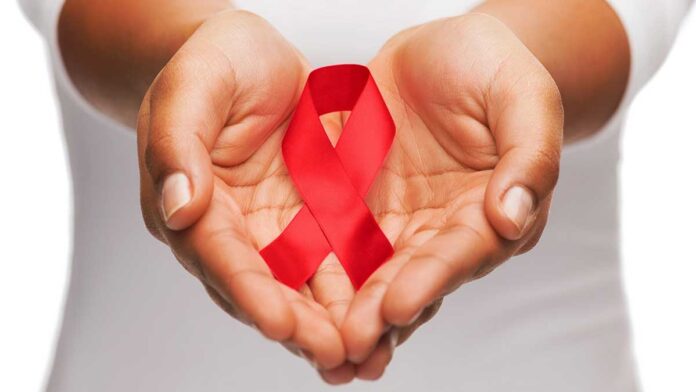“New Homosexual Disorder Worries Health Officials.” Printed on the front page of the science section of the New York Times on May 11, 1982, this article articulated the alarming rise of a serious immune system disorder primarily affecting gay men. It referred to the disease as A.I.D. (acquired immunodeficiency) as well as G.R.I.D. (gay-related immunodeficiency). The article stated that G.R.I.D., whose cause was at the time unknown, had risen to the level of an epidemic. Some months later, in September 1982, the CDC first used the term AIDS — Acquired Immune Deficiency Syndrome — and released the first case definition for AIDS.
Now, 40 years later, what we know about this virus far exceeds what was known back in 1982. Over the past four decades, our communities have helped to develop essential networks of doctors, case managers, policymakers, researchers, and activists who have devoted their lives to ensuring that people living with HIV have access to life-saving medical care. We’ve successfully made HIV a manageable chronic health condition. As long as we adhere to our meds, stay in care, and manage our health, it is fully possible to live a long and healthy life with HIV.
Those of us who were around in 1982 as these first AIDS cases were reported upon are now at an age where HIV is not our only health concern. We are also contending with common age-related health conditions. Today in Philadelphia, 55% of people living with HIV are over the age of 50. These demographic shifts in an aging population of people living with HIV necessitates that we adopt a framework of HIV/AIDS as an aging issue.
As we get older, it is essential that we have not only a medical system capable of caring for our healthcare needs, but also an aging services system that will help us to age in place and to thrive as we move into our later years. We need the professionals who work with older adults to be well versed in the issues that impact our lives as people living with HIV, and to have the cultural awareness and sensitivities to embrace the diversity of our communities. We deserve to be cared for by people who understand the issues we grapple with and who can respond with knowledge and compassion.
Just as it is important that the aging services network learn more about older adults living with HIV, so too do our communities need to learn more about aging services. We may soon be seeing geriatricians in addition to our HIV doctors. We may start receiving supportive services from our Area Agency on Aging in addition to an HIV case management agency. Learning more about the resources, services, and benefits available to us from the aging services network will help us to advocate for our needs as we age.
We at the Elder Initiative @ William Way, along with many community partners, have been working with leaders in state government over the past several years to raise the profile of aging with HIV. We have been fortunate to have an administration in Harrisburg that has been receptive to this message. The current Pennsylvania State Plan on Aging, adopted by the Pennsylvania Department of Aging as its strategic blueprint for providing services to older adults, speaks to HIV for the first time and commits to improving provider education and outreach to older Pennsylvanians living with HIV. The Department has created a robust HIV resource page on its webpage, similar to what it offers for other health conditions impacting seniors. This move towards understanding HIV as a chronic illness affecting older adults, similar to diabetes, provides an opportunity for education and training for providers of aging services.
The next step in this work is the Pennsylvania Department of Aging’s virtual Institute on HIV & Aging, to be held on October 7th. The Institute will bring together aging services professionals and individuals living with HIV to explore topics related to aging with HIV in Pennsylvania. This will be the first time that our state’s Department of Aging will host a statewide event dedicated to HIV. The Institute will follow the LGBTQ Aging Summit, held virtually on October 6th. Registration for both events is available here.
